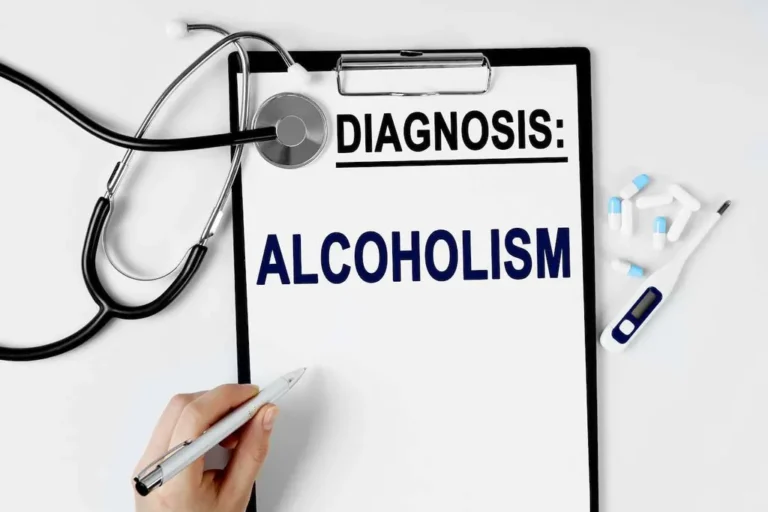Why is Alcoholism Considered a Chronic Disease: Top Facts About AUD

Most people do not think that a glass of wine at a family event or a cocktail shared with friends may lead to perilous consequences and result in a lifelong addiction. However, regular alcohol consumption may lead to severe outcomes. Health professionals across the globe share a common concern regarding the increasing consumption of intoxicants. Experts emphasize the grave impact of alcohol use disorder (AUD) on health. Fighting this affliction is impossible without dismantling the myths around this phenomenon. In this blog post, we will outline the risks of AUD and answer the question, “Why is alcoholism considered a chronic disease?”
Is Alcoholism a Disease?
When discussing the uncontrollable consumption of distilled spirits, researchers argue that excessive levels are extremely dangerous for health. Individuals who give in to the addiction cannot stop consuming booze. In mild stages, the signs of AUD are barely perceivable. However, it could be too late to turn back when its severity increases.
According to statistical data, over 14.5 million people in the US suffer from alcohol addiction. If a daily intake becomes higher than average, individuals experience extreme discomfort when trying to stop. Noticeable mood swings and occasional short-term memory loss also indicate a person cannot control their drinking habits anymore.
Why is alcoholism considered a chronic disease? AUD requires deploying long-term management strategies. Besides, this condition becomes worse when left untreated. A patient who decides to become free of this addiction should embrace a holistic approach and address its underlying reasons, including mental health issues.
As a medical condition, AUD makes it nearly impossible to change behavior patterns despite their adverse effects and impact on health and social connections.

Take back control of your life and start on the road to recovery now.
Signs of Alcoholism as a Chronic Disease
When a person stays ill for three months or more, it will not suffice to take prescribed medicine to get better. As a chronic disease is different from a regular one, it requires a holistic treatment approach. Centers for Disease Control and Prevention (CDC) reports that six out of ten U.S. citizens have at least one chronic condition, which often leads to disability and death.
A chronic drinker does not even recognize they have an issue until the long term effects of alcohol start to manifest. It is impossible for them to try to change their habits without taking a whole set of steps to control the condition. Below, we have listed the main indicators everyone should be aware of. If at least two of these signs become noticeable within a year, it’s time to make a doctor’s appointment:
- A patient often consumes more alcohol than they intended;
- All attempts to limit alcohol intake fail;
- An addicted individual changes their behaviors to obtain booze at every opportunity;
- Frequent alcohol misuse prevents a drinker from meeting their social obligations;
- Intense cravings result in increased consumption of alcoholic beverages.
Some people are genetically inclined to chronic ethanol use. This condition can be controlled with medication combined with behavioral therapy. Similar to other chronic diseases, it may result in relapses and lead to the isolation of an addicted person from their close circle. Let’s consider the top reasons for classifying ACD as a persistent health condition.

Main Causes of Alcoholism
The American Medical Association emphasizes that increased ethanol consumption over a prolonged period alters brain functioning. Professionals from other healthcare organizations also list an addiction to liquor among medical and psychiatric conditions. Multiple factors enable specialists to answer the question, “Why is alcoholism considered a chronic disease?” and demonstrate what preconditions exacerbate its effects.
- Genetics: 40-60% of people with AUD have genes that make them vulnerable to developing this condition. If an individual has a relative with an addiction, they are more likely to develop it in the future.
- Environment: Patients with chronic alcoholism often find it difficult to stay away from liquor if they are surrounded by friends, coworkers, and family members who do not recognize the increased consumption of inebriants as a threat. Moving to the recovery stage may require going into rehab or finding a secure environment among people who share similar goals.
- Lifestyle choices: Those who do not see any value in a healthy way of life and do not set clear objectives on the way to self-improvement often find themselves addicted to all sorts of substances.
- Mental illness: People who suffer from depression and other psychological conditions are predisposed to seek relief by increasing alcohol intake.
As there is no one-fits-all cure for alcoholism, addicted people should seek medical advice and deploy a complex strategy to achieve recovery. The possibility of relapse is real, but by changing a lifestyle, finding a safer environment, and discovering a way to deal with withdrawal symptoms, everyone can succeed.
Consequences of Alcoholism
Patients who wonder, “Why is alcoholism considered a chronic disease?” should learn about its progression and impact on health. The condition is known to worsen over time as the negative effects of drinking accumulate and take their toll.
When moving through different stages of alcoholism, one might be slow to recognize the signs of serious damage. At first, a person experiences relaxation and elation, which prompts them to continue to drink liquor to elevate stress.
The next stage is characterized by a gradual personality degradation and relationship dissolution. Alcohol abuse impacts the following spheres:
- Finances: Spending all salary on booze makes it impossible to save money. A person may start borrowing money or using illegal means to purchase liquor.
- Family relationships: By becoming secretive and distancing themselves from their loved ones, addicts lose their chance to get support.
- Health: Increased alcohol intake may result in high blood pressure and cardiovascular and liver diseases. The immune system becomes weaker, which has long-term consequences for the overall well-being of an individual.
When the negative effects become noticeable, it’s time to learn more about time-tested substance abuse treatment approaches to bring the desired relief. Every individual who has ever suffered from the dire consequences of this condition knows that it takes a lot of time to progress on the way to improvement.

This can be a difficult journey, but you don’t have to go it alone. Let us be your guide and provide you the environment needed to regain control of your life and begin the path to recovery.
Taking Steps Toward Recovery
Nowadays, a variety of detox programs offer assistance to people with AUD who decide to change their lives for the better. Health professionals have a clear answer to those who ask: “Why is alcoholism considered a chronic disease?” They are also likely to recommend patients adopt effective rehabilitation strategies that include the following steps:
- Reducing substance intake
- Recovering under the supervision of specialists
- Going to psychotherapy sessions
- Finding a supportive environment
Heavy drinking impacts the neural pathways in the brain, making it extremely challenging to return to a healthy state. This is why the possibility of relapse remains a dangerous threat to every addicted individual.
While managing symptoms is an achievable goal, the treatment for alcohol use disorder requires following an all-encompassing approach to ensure a patient won’t return to bad habits.
Why is alcoholism considered a chronic disease? Because the cravings resurface again and again throughout an individual’s life triggered by traumatic events and encounters with other people who aren’t ready to change their behavior. The recurring nature of this condition necessitates fully transforming a patient’s life.
Those who suffer from depression and resort to substance abuse often isolate themselves from their loved ones. Family members may fail to see what addicted relatives are going through unless they battled the same issues in the past.
EcoSoberHouses recognizes the importance of living in a safe environment where clients are surrounded by those who respect and support them. Our customers value our secure housing programs, as they allow them to reduce the possibility of relapses and become a part of a large community sharing similar goals. They are fully committed to becoming a better version of themselves.
Our program was created for highly motivated individuals who want to progress toward health and happiness. We created all the conditions for clients who prioritize personal development and see battling AUD as their lifelong goal. Contact us anonymously and discover how to achieve sustainable progress and realize your purpose.




